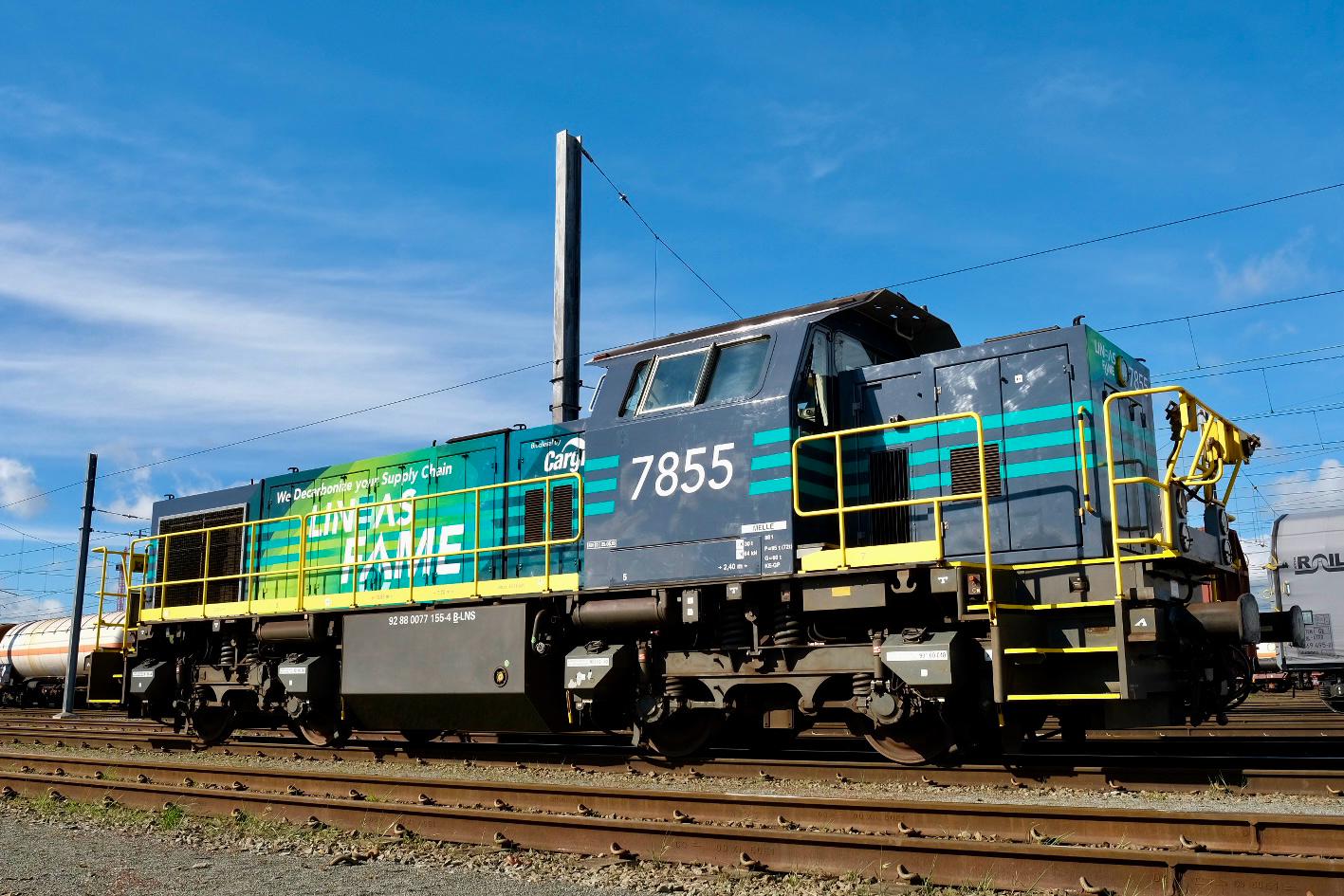 Lineas has unveiled its new FAME locomotive which highlights company’s commitment to finding sustainable solutions to reduce CO2 emissions in the transport sector.
Lineas has unveiled its new FAME locomotive which highlights company’s commitment to finding sustainable solutions to reduce CO2 emissions in the transport sector.
FAME, short for Fatty Acid Methyl Ester, is a biofuel produced – among others – from non-food raw materials such as used cooking oil. Although it is already used in marine engines and simple combustion systems, waste-based FAME has not been used yet in locomotives. Lineas had the premiere of being the first rail freight operator to test it.
Lineas is currently in the final testing phase, which is expected to last until June of this year. These tests, conducted in collaboration with Cargill, are critical to validate the performance and reliability of FAME-powered locomotives before they are put into service.
“The tests currently being conducted with FAME highlight our efforts to implement sustainable transportation solutions. We are committed to reducing our environmental footprint while ensuring the efficiency and reliability of our services,” Bernard Gustin, Executive Chairman of Lineas said.
With the FAME locomotive, Lineas wants to emphasise the importance of biofuels such as FAME as it is a readily available alternative to diesel, that can be used on non-electrified rail lines such as those in Flemish ports.
The use of FAME offers significant emission reductions which amount to up to 84% compared to conventional diesel. Thanks to the use of FAME and other biofuels, Lineas aims to reduce its Scope 1 emissions by 42% by 2030, a target that is in line with the validated Science Based Targets.
Although the use of biofuels such as FAME is a major step forward, Lineas also emphasises that there is an urgent need for further infrastructure development to enable widespread use of these fuels. Currently, there is no refuelling infrastructure for the supply of biofuels, which hinders their immediate rollout. Lineas calls for the cooperation of all stakeholders to develop this important infrastructure and accelerate the transition to sustainable transportation fuels.
Share on:



